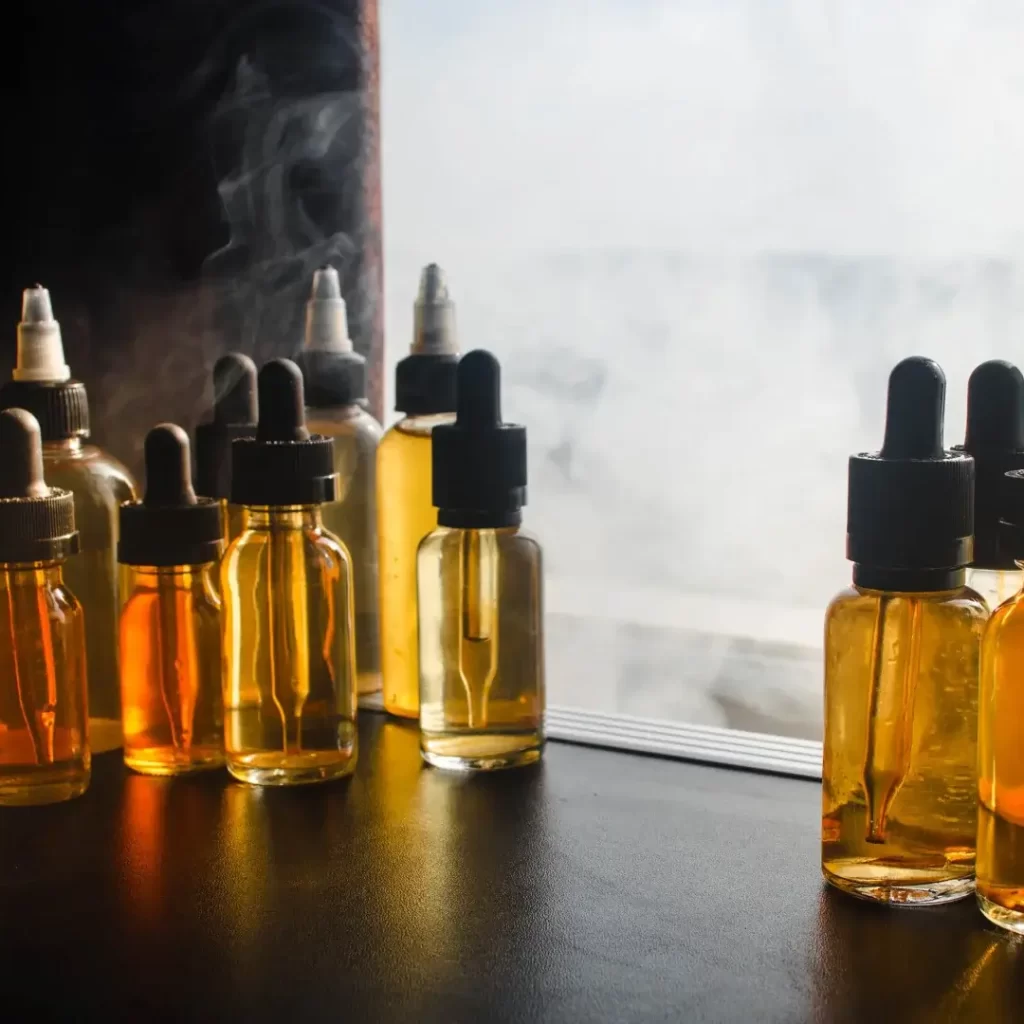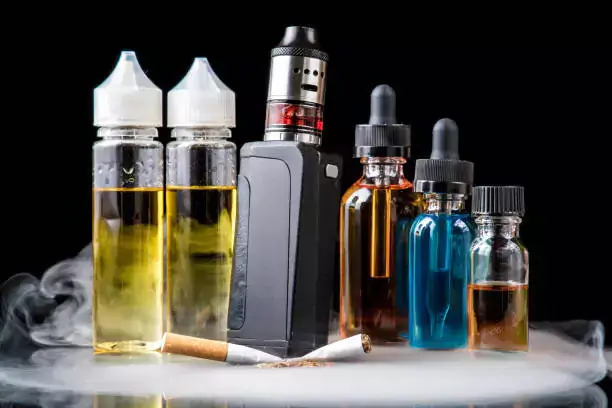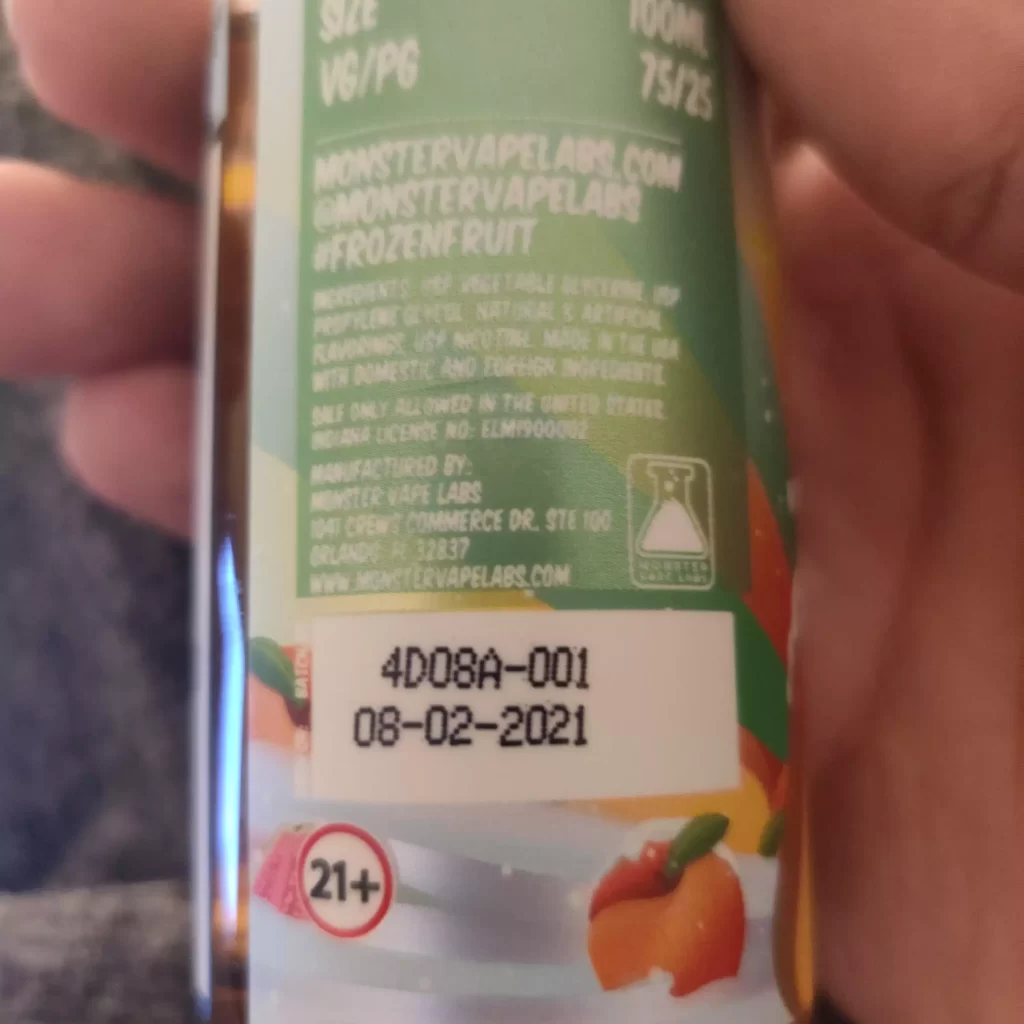In the ever-evolving world of vaping, enthusiasts are constantly seeking the perfect balance between flavor satisfaction and their well-being. As direct lung vaping gains popularity, the question of whether vape juice expires has taken on paramount importance. Delving into the intricacies of vape juice expiration, this review aims to navigate the complex landscape of e-liquid longevity and its implications for vapers.
Understanding the Timeline: Vape Juice Expiry and Best Before Dates
Vape juice, known for its diverse range of flavors, carries a finite shelf life. While enthusiasts relish the intricate flavor profiles, it’s essential to recognize that even the most well-crafted e-liquids have a limited lifespan. Generally, properly stored vape juice maintains its quality for around 1 to 2 years. It’s crucial to differentiate between the expiry date and the best before date indicated on the packaging. The former signals the date after which the vape juice should not be used, while the latter suggests the optimal period for consumption.
The Unraveling of Vape Juice Expiry
The term “go bad” in the context of vape juice centers on changes in flavor and smell. Oxidation plays a pivotal role in this process, causing vape juices to deteriorate over time. Regardless of whether the vape juice is composed of propylene glycol (PG) or vegetable glycerin (VG), all variants are subject to the ravages of time. Even the additional ingredients containing chemical compounds have a finite best before date, making it imperative for vapers to remain vigilant.
With flavor additives ranging from 0.5 to 10 percent, chemical reactions are inevitable after a certain duration. Colorings infused into vape juice also have a defined usage window. While the alteration in color might not be a primary concern, changes in flavor and aroma should prompt serious health considerations.
Decoding the Signs of Vape Juice Expiry
Spotting the signs of vape juice expiration doesn’t necessitate expertise; several telltale signs can be observed. The progression of vape juice aging becomes apparent through
- Fade in Flavor, Especially in VG: A change in the favored flavor is a clear indicator that the vape juice might be past its prime. Devotees of specific flavors are particularly sensitive to even slight variations.
- Alterations in Smell and “Mouth Feel”: A significant aspect of the vaping experience is the aroma. If the vape juice emits a different odor than usual, it’s time to consider its retirement.
- Formation of Residue: Over time, vape juice components might separate, leaving residue at the bottom of the tank or bottle. While separation isn’t always a sign of expiration, doubt surrounding the juice’s age should be addressed cautiously.
- Changes in Juice Color: Gradual color changes are common as vape juices mature. While some color shift can be attributed to oxidation or chemical reactions, excessively drastic changes should raise concerns.
- Altered Viscosity: Inconsistent viscosity, with stratification between top and bottom components, is a red flag. Such alterations not only affect the vaping experience but also have the potential to damage equipment.
Is Vaping Expired Juice Safe?
Vaping expired juice, like any expired product, comes with potential risks.
- Chemical Deterioration: Over time, the components within vape juice can deteriorate. This deterioration can lead to the formation of potentially harmful compounds. These compounds may not only affect the flavor and quality of the vape juice but also pose health risks when inhaled.
- Loss of Preservative Efficacy: Vape juices often contain preservatives to prolong their shelf life and prevent microbial growth. However, as vape juice ages, these preservatives can lose their effectiveness. This can create an environment conducive to bacterial and fungal growth within the vape juice, which can introduce harmful microorganisms.
- Crystallization of Constituents: Some chemical and mineral constituents present in vape juice can crystallize as the product ages. This can affect the consistency and quality of the juice. Crystallization can also lead to issues with the vaping device, potentially causing clogs or other problems.
- Susceptibility of Vegetable Glycerin: Vegetable glycerin, a common component in vape juice, is particularly susceptible to bacterial colonization. This can be a significant health concern, as inhaling bacteria from expired vape juice can have adverse effects on respiratory health.
Aging Vape Juice: Causes and Considerations
Various factors influence the pace at which vape juice expires.
- Nicotine Type: The type of nicotine used in vape juice is a significant factor in how quickly it expires. Nicotine salts are mentioned as degrading more slowly than freebase nicotine due to their chemical composition. This suggests that vape juices containing nicotine salts may have a longer shelf life compared to those with freebase nicotine.
- Flavor Complexity: The complexity of the vape juice’s flavor profile also affects its aging. The passage suggests that flavors with fruit and floral notes tend to fade faster than more intricate flavor profiles, such as custard. This means that the flavor of vape juice can change over time, with some elements becoming less pronounced.
- Preservation Measures: To prolong the shelf life and maintain the quality of vape juice, certain preservation measures are recommended. These include:
- Storage Away from Light and Heat: Exposure to light and heat can accelerate the aging process of vape juice. Storing it in a cool, dark place can help preserve its quality.
- Minimizing Agitation: Agitating vape juice, such as shaking the bottle excessively, can introduce oxygen into the liquid, which may lead to oxidation and degradation. Minimizing agitation can help maintain the product’s integrity.
Final Verdict
Does Vape Juice Expire?The answer is unequivocally yes. Vape juice is not immune to the passage of time. The duo of propylene glycol and vegetable glycerin, though extending the shelf life to 1-2 years, cannot forestall the changes brought on by nicotine oxidation and flavor degradation. Aging e-liquids entail diminished nicotine content and weaker taste profiles.
Vapers are advised to respect the expiration dates indicated on vape juice packaging. While some individuals may assert their tolerance for consuming expired vape juice, it’s a practice fraught with uncertainty. Rather than gambling with their health, vapers should prioritize safety by adhering to recommended usage guidelines and engaging all their senses to evaluate the condition of their vape juice.
In the dynamic realm of vaping, understanding the lifecycle of vape juice is paramount. Armed with the knowledge of expiration dates and the signs of vape juice aging, enthusiasts can savor the diverse array of flavors while safeguarding their well-being.
If you want to know more, please refer to this article:
https://keystonevape.com/best-vape/the-best-disposable-vapes-2024-you-cant-miss/



